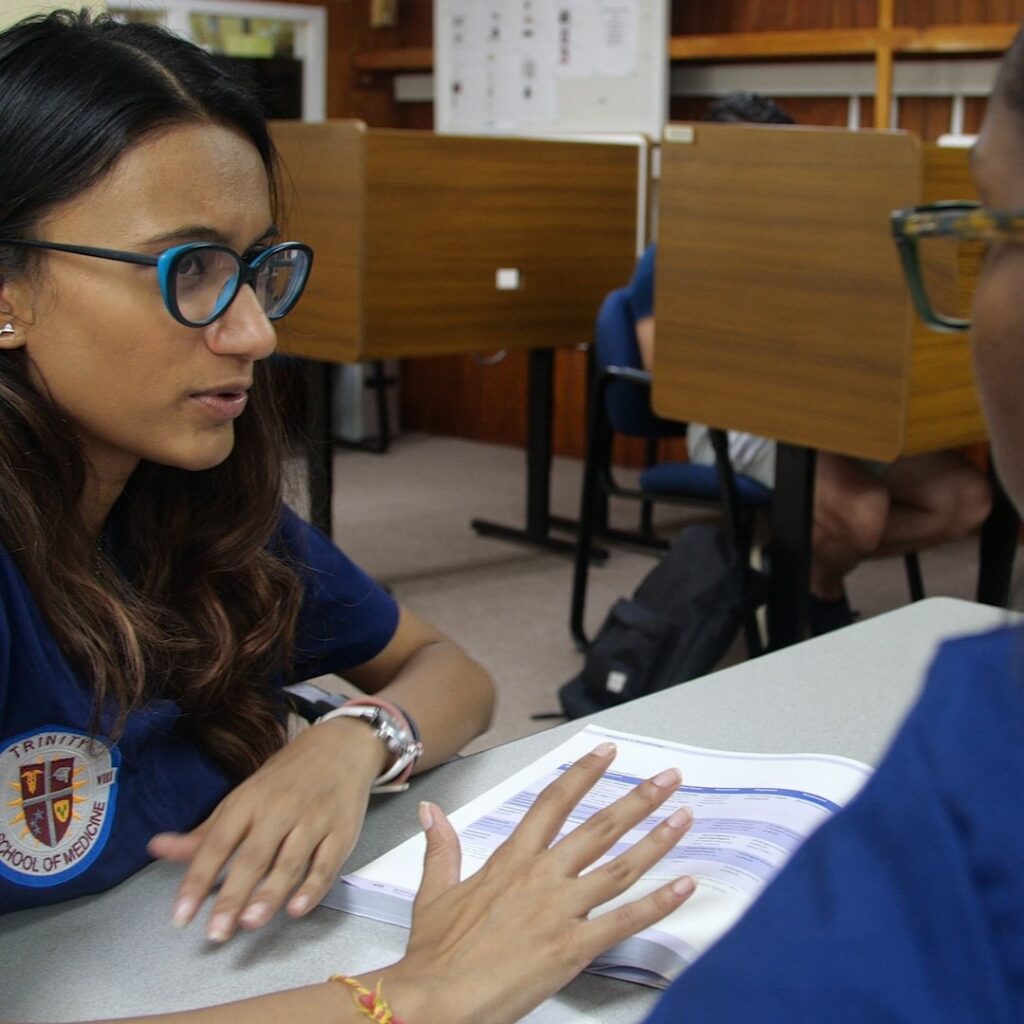Choosing the Right Institution for your Future

One of the most common things prospective applicants ask when researching off-shore medical schools is “What are the top Caribbean medical schools?” While it makes sense to look for an objective assessment of the options as a starting point, perspective students must first understand what makes a “top Caribbean medical school.”
There are number of ranking platforms available from trusted publications that provide useful data on U.S. and Canadian schools, allowing students and their families to make an informed decision. Unfortunately, this just doesn’t exist for Caribbean medical schools.
While there is no official unbiased ranking system, below is a quick overview of what is important to look for when considering a Caribbean medical school.
When looking for an off-shore medical school, one should only consider schools that are accredited by an internationally recognized body. Accreditation ensures that the medical school has been independently evaluated. This evaluation typically includes a visit to the school as well as an assessment of the quality of the school’s administration, facility and education to confirm that it meets the accreditation body’s standards.
The Caribbean Accreditation Authority for Education in Medicine and Other Health Professions (CAAM-HP) developed a clear and authoritative mandate for accreditation that includes site visits, preset standards, self-evaluation, and external reviewers to accredit medical schools.
The World Federation for Medical Education (WFME) compares accreditation agencies against globally-accepted criteria for quality measures that demonstrate that a medical school meets rigorous standards.
The Foundation for Advancement of International Medical Education and Research (FAIMER) is a non-profit foundation of the Education Commission for Foreign Medical Graduates (ECFMG). It produces a comprehensive resource detailing information about foreign medical schools. Known as the World Directory of Medical Schools, it provides data regarding a school’s curriculum, enrollment, and accreditation or program recognition.
The next statistic you’ll want to identify is the school’s match rate. Trinity prides itself on ensuring that its graduates are afforded excellent opportunities for residencies. We’re proud to hold a 96% residency placement rate at some of the finest institutions in the country. Graduates of Trinity have gone on to apply and succeed in residencies across the U.S. and Canada.
At Trinity, we do not “gate” our published numbers based on test scores, nor do we throw the door wide and let everyone sink or swim. Rather, we strive to select candidates that have been overlooked by the United States medical school system and give them a supportive environment to thrive and achieve success.
A medical school’s board scores are a reflection of its curriculum and the methods it uses to prepare students to practice medicine. Schools with a high pass rate and competitive scores indicate continuous attention and adaptation of standards to reflect the needs of the healthcare community.
Trinity is proud to note that our USMLE Step 2 CK pass rate is 96% with an average score of 228.

One thing applicants may overlook when identifying a “top Caribbean medical school” is the location of clinical rotations (and the number of times they will have to move).
There are Caribbean medical schools that spread their clinicals across the U.S., requiring students to move every eight weeks for years on end to complete their medical education.
Trinity students’ clinical rotations are provided in partnership with the Houston Healthcare system in central Georgia and the Ascension Saint Agnes Hospital in Baltimore, Maryland. Houston facilities include two fully accredited acute care medical facilities, Houston Medical Center and Perry Hospital, as well as the Houston Healthcare Pavilion in Warner Robins, Georgia.
Trinity provides students the kind of clinical experience you would expect from a U.S. medical school. All rotations are scheduled by a Trinity clerkship administrator. Students rotate with a low preceptor-to-student ratio and can complete their full 48 weeks of core rotations in one location at our affiliated hospitals and clinics – no moving around from city to city, no waiting for rotations slots to open, and no gaps between rotations. This is a huge benefit for both quality of life and cost of living.
No matter where you hope to attend medical school, remember this: academic culture matters. Trinity’s small class size and supportive atmosphere is cultivated to create a safe, distraction-free environment where students can meet their full potential as future doctors.
At Trinity, we know that when students are supported, they are more engaged, have fewer stressors, perform better on tests, and, ultimately, become better physicians. Through top accreditation, rigorous academics, a supportive environment, world-class partnerships, and personal attention, we graduate, match, and deliver skilled, compassionate, and successful physicians throughout the world.
When you make the decision to attend Trinity, you aren’t just earning a quality medical education; you are also gaining a strong support network that will help you succeed from the minute you arrive in St. Vincent to your final clinical rotation and beyond.

Take the first step toward your future at a top Caribbean medical school.
As there is not a specific ranking system, the Caribbean medical school rankings can vary depending on the source and criteria used. Factors such as academic reputation, research output, faculty qualifications, student outcomes, and clinical training opportunities may be considered in determining rankings. However, it’s important to note that rankings may differ across publications and organizations.
While rankings can provide valuable insights, they shouldn’t be the sole determining factor in choosing a Caribbean medical school. It’s important to conduct thorough research, visit campuses if possible, speak with current or former students, and consider other aspects such as location, curriculum, clinical rotations, faculty, and financial considerations. A holistic approach to decision-making will help ensure the best fit for your individual needs and goals.
While MCAT scores are often a consideration for admissions to medical schools, including those in the Caribbean, it is worth noting that some Caribbean medical schools may place less emphasis on MCAT scores compared to other factors. These schools, such as Trinity, may adopt a more holistic approach to admissions, considering a broader range of criteria to evaluate applicants.
While MCAT scores can demonstrate an applicant’s academic ability and preparedness for medical school, other factors such as academic performance, letters of recommendation, personal statements, and interviews also carry significant weight in the evaluation process.
Some top Caribbean medical schools offer scholarship opportunities to support students financially. These scholarships may be merit-based or need-based. It is advisable for prospective students to inquire directly with the schools about available scholarship programs and the application process.
Top Caribbean medical schools prioritize preparing students for licensure exams such as the United States Medical Licensing Examination (USMLE) . They often provide comprehensive review programs, access to practice materials, and guidance on exam preparation strategies to ensure students are well-prepared and successful to be able to practice in their desired location.
Office of Admissions & Administration
Basic Science Campus, St. Vincent